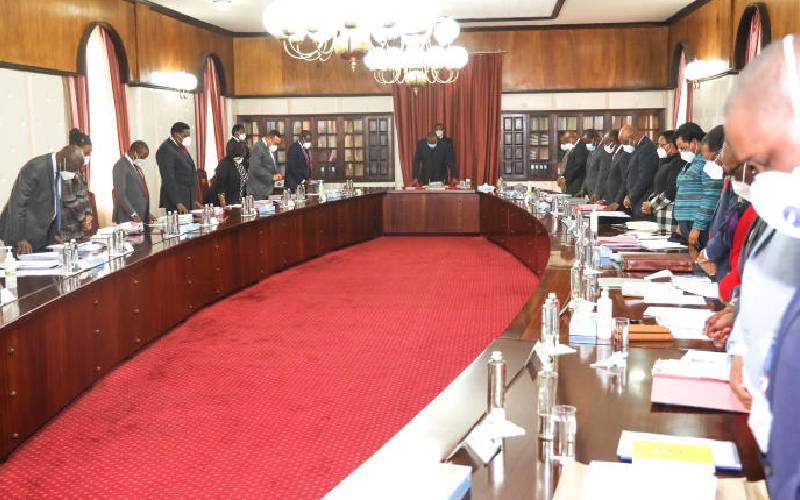×
The Standard e-Paper
Stay Informed, Even Offline

President Uhuru Kenyatta chairing a Cabinet meeting at State House, Nairobi, 2020. [PSCU]
On the authority of the Kenya Constitution, the Cabinet is the highest executive body charged with managing the State’s affairs. With 21 members, including the president, deputy president, the Attorney-General and Cabinet Secretaries, the Cabinet forms the main decision-making group within the government.